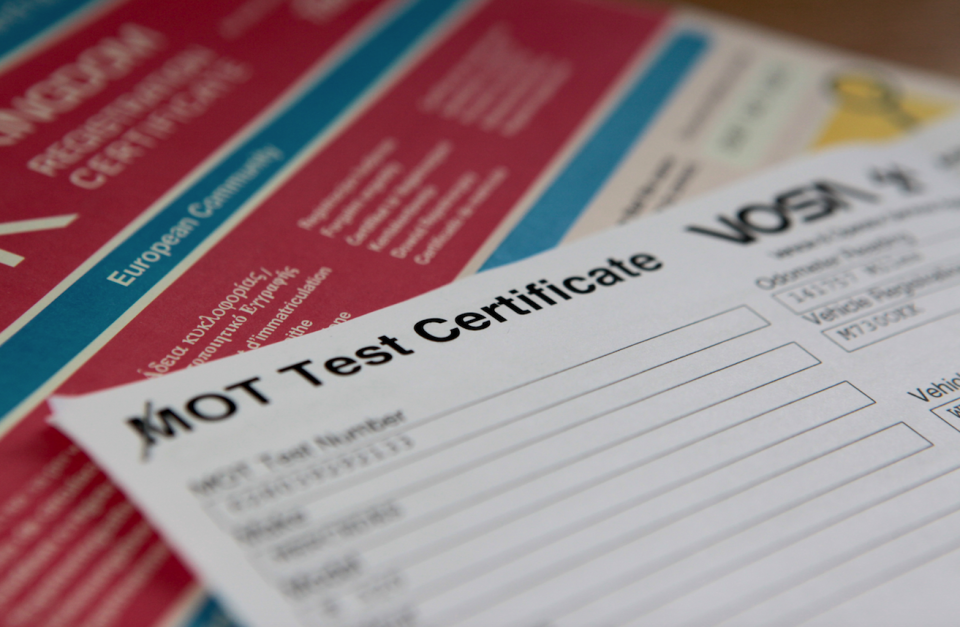Big changes to the MOT test are being introduced - here's what you need to know

Watch out motorists.
There’s some new changes to the MOT test on the way, and they could potentially affect whether or not your vehicle will be deemed fit for the roads.
The changes have been introduced by the Drivers and Vehicles Standard Agency (DVSA), with new rules including tougher emissions tests and change to several fault categories.
Here’s what you need to know.
New fault categories

From Sunday, defects discovered during an MOT will be categorised differently – in minor, major and dangerous categories.
A ‘dangerous’ fault means that the vehicle poses a direct and immediate risk to road safety, or that it poses a serious environmental impact.
This would be result in a test fail, and drivers would be unable to use it until the vehicle is repaired.
A ‘major’ fault, meanwhile, may affect the vehicle’s safety, pose a road risk or have a major environmental impact. It will also result in a failed mOT.
If a car has a ‘minor’ fault, this means that it poses no significant effect on the environment and no safety risk. It will pass the MOT but will require repairs as soon as possible.
Stricter rules for diesel cars.
New environmental regulations will see diesel drivers facing stricter limits for emissions on vehicles fitted with a diesel particulate filter (DPF).
The DPF captures and also stores exhaust to reduce emissions.
A vehicle will receive a major fault if the MOT are able to see smoke coming from the vehicle, or evidence that it has been tempered with.
A new DPF will often cost more than £1,000 to fit.
The RAC’S Simon William said: ‘Those unlucky enough to discover their vehicle has a faulty or tampered with diesel particulate filter will, unfortunately for them, be burning a big hole in their pocket due to the very high cost of replacement.
‘Drivers who have a diesel vehicle with a DPF should make sure it is regularly given a good run at motorway or dual carriageway speeds so the filter is automatically cleared of any clogged up soot.’
MOST POPULAR TODAY ON YAHOO
‘Next time it will be smashed’: Man arrested after threatening note left on ambulance
Britain’s favourite sarnie! This is the most popular sandwich filling in the UK
Couple used their £500,000 thatched cottage to hide cannabis factory
Meghan Markle’s sister launches scathing attack on Kensington Palace for not supporting father
Clown who appeared on Belgium’s Got Talent ‘murdered girlfriend in front of her three children’
Checks for newer cars
If you’ve purchased a new car within the last 10 years, you’re likely to face a whole lot of checks. These include:
If tyres are under inflated to an obvious degree
If the brake fluid has been contaminated
Whether fluid leaks pose an environmental risk
Checks on your brake pad warning lights and if brake pads or discs are also missing
Checks on reversing lights on vehicles first used from September 1 2009
Headlight wipers on vehicles first used from September 1 2009 (if they are fitted with them)
What hasn’t changed
Well, it seems that motorists can be still fined up to £1,000 for driving a vehicle without a valid MOT.
Vehicles must undergo the test on the third anniversary of their registration and every 12 monthsafter if they are over three years old.
A number of vehicle parts are are checked during MOTs to ensure they meet legal standards, such as lights, seatbelts, tyres and brakes.
In 2016, some twenty-eight people were killed and 413 were seriously injured in accidents on Britain’s roads in 2016 when a vehicle defect was a contributory factor.
Gareth Llewellyn, chief executive of the Driver and Vehicle Standards Agency (DVSA), said: ‘DVSA’s priority is to help you keep your vehicle safe to drive.
‘You can start to look forward to cleaner, safer vehicles, with greater clarity on any defects identified by the tester.
‘A properly maintained vehicle should have no problem passing the new MOT.’

 Yahoo Finance
Yahoo Finance 
